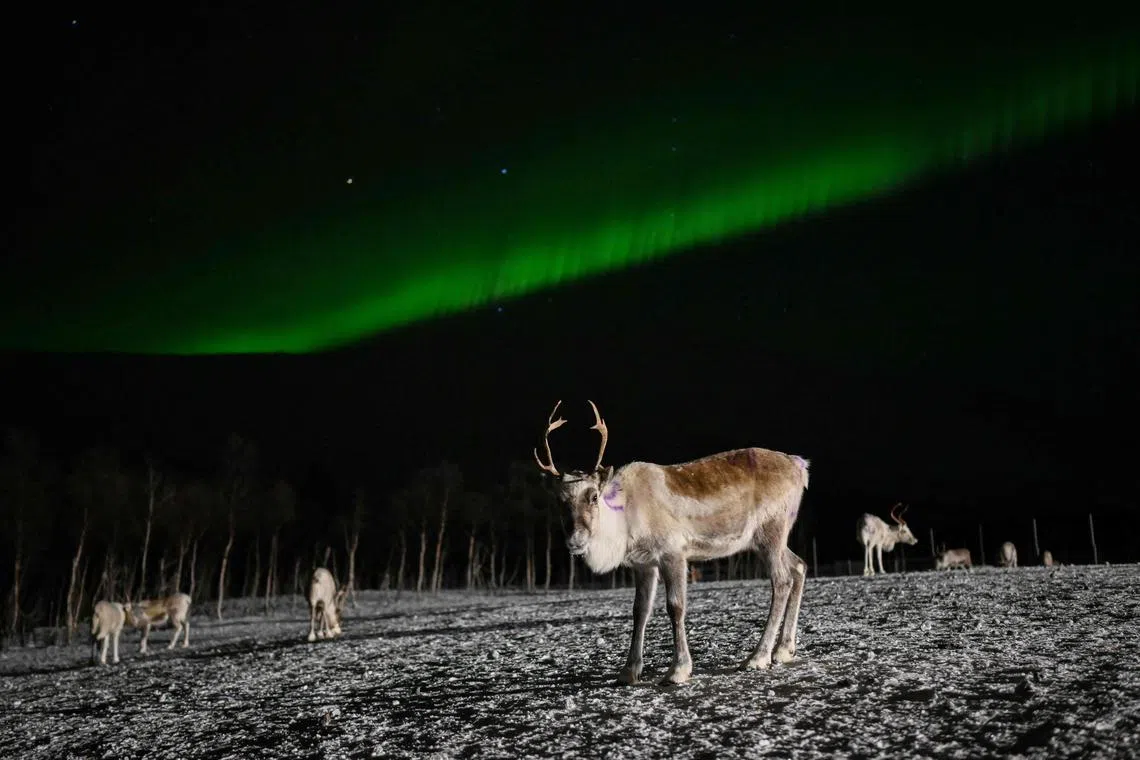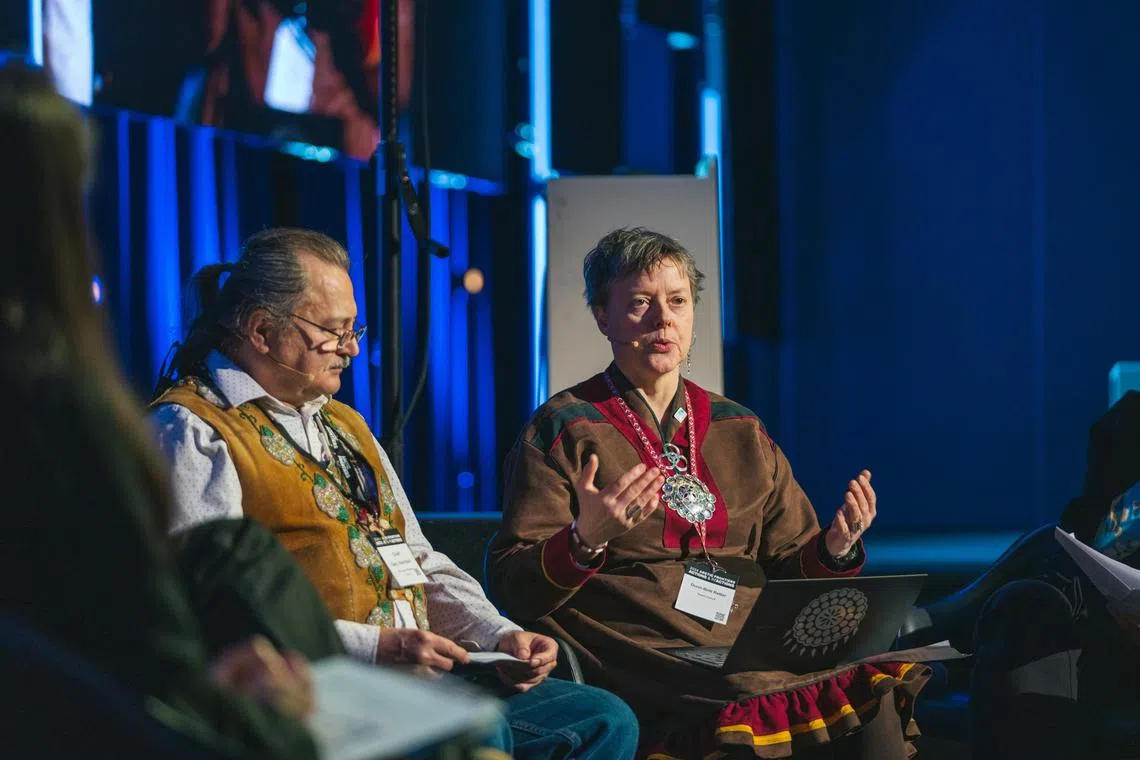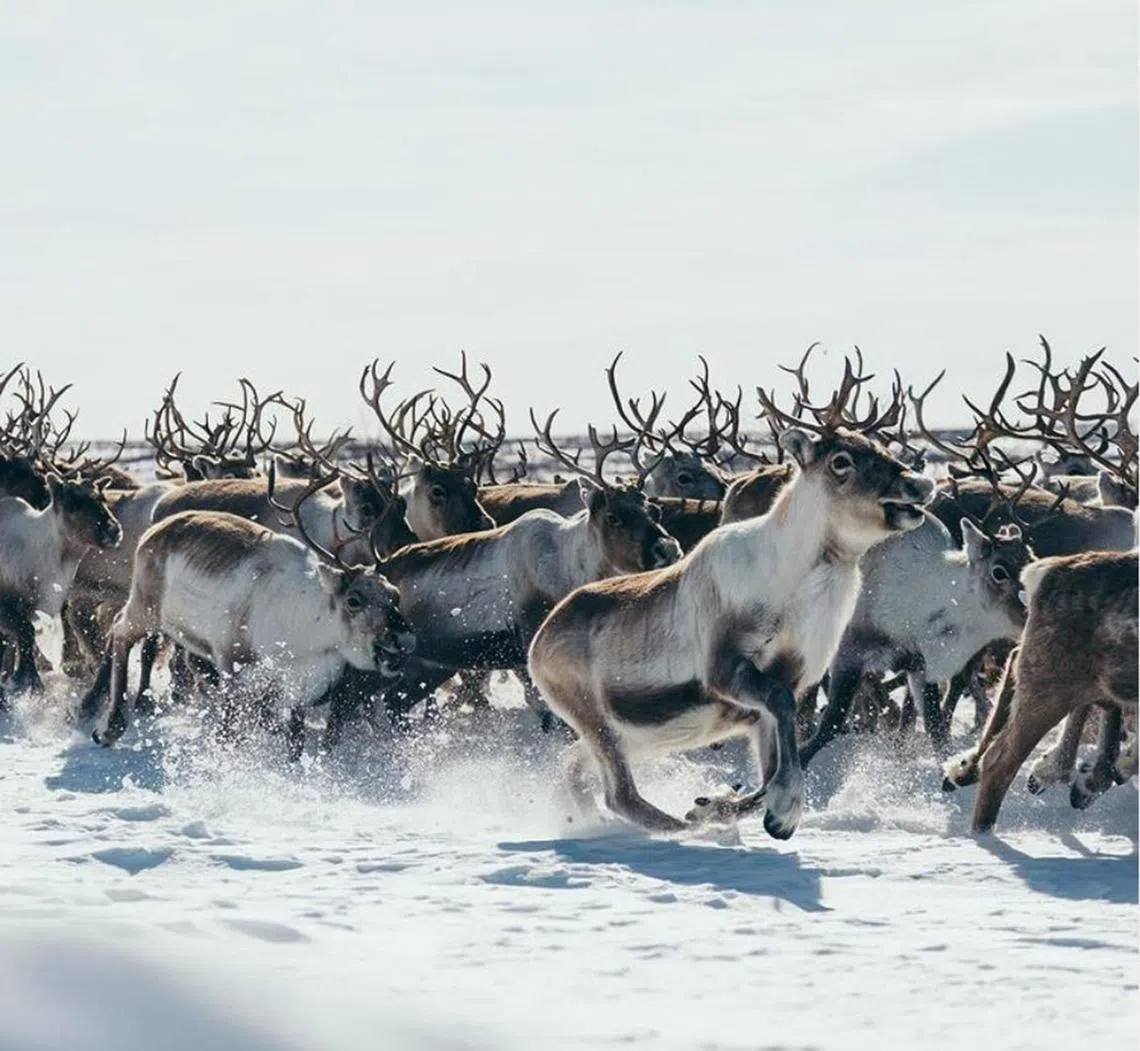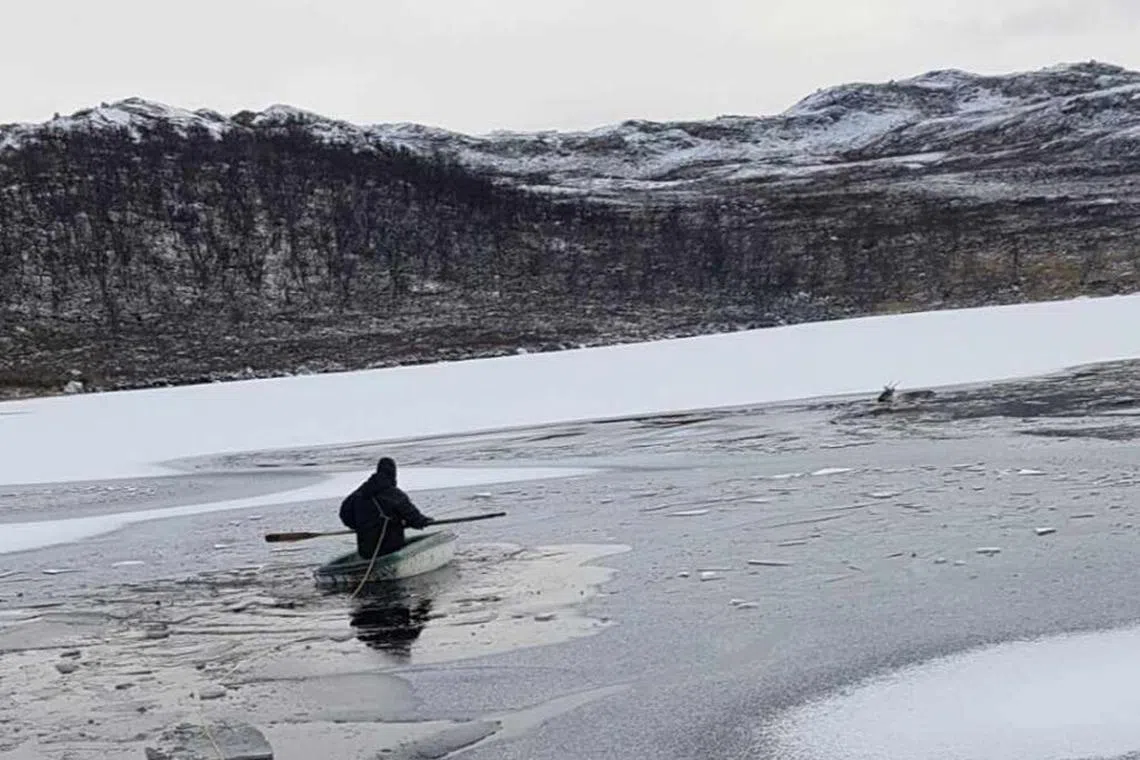Climate change, Norway’s energy transition threaten indigenous people’s reindeer herding
Sign up now: Get ST's newsletters delivered to your inbox

Reindeer in front of the Northern Lights illuminating the sky above a Sami camp outside the village of Breivikeidet near Tromso, Norway, on Jan 1.
PHOTO: AFP
SINGAPORE – A warmer Arctic is changing the winter pastures of Norway, making it difficult for reindeer herding, a key source of livelihood for the indigenous Sami people in the country.
Earlier snow melt and more rain form layers of ice in the snow, and reindeer have a hard time digging for lichen and other plants growing underneath. When the animals walk on thin ice, they are at risk of falling through the ice.
The Sami herders have learnt to be flexible to changes in nature by finding alternative food and easier migration routes for the reindeer, said Ms Gunn-Britt Retter, head of the Arctic and environmental unit of the Saami Council, which promotes Sami rights and interests in Norway, Sweden, Russia and Finland.
For decades, economic and industrial activities have been encroaching on Sami territories and grazing lands in northern Norway, threatening their adaptability.
These days, however, the Nordic country’s fight against climate change by ramping up renewable energy is ironically hurting the Sami people. This issue has been dubbed green colonialism.
“(They) look to our lands to place alternative energy sources. We get a lot of industrial development with larger mines for rare minerals, or copper for batteries. We get wind turbines on our land, which is disturbing our flexibility,” Ms Retter told The Straits Times on Jan 30 on the sidelines of the Arctic Frontiers conference in Tromso, Norway.
“It is not only the climate which is impacting us, but also the response measures.”
Whenever Sami leaders joined discussions at the four-day conference, they made sure to call for joint decision-making on issues that affect the indigenous community so that their people’s needs will not be ignored.

Ms Gunn-Britt Retter, head of the Arctic and Environmental Unit of the Saami Council, speaking at a forum on Jan 30 at the annual Arctic Frontiers conference.
PHOTO: DAVID JENSEN/ARCTIC FRONTIERS
Currently, the authorities are obliged to consult the Sami Parliament – an elected assembly separate from the Norwegian government – on any matters that will affect the indigenous people.
Parts of northern Norway border Russia, and after the Ukraine invasion in 2022, the Nordic nation had increased military operations at the border.
At one panel, Saami Council president Aslak Holmberg acknowledged that while the Sami community living there welcomes the additional security, reindeer are sensitive to noise and there have been instances of military exercises driving through herds. During the calving or birthing season, the animals can be particularly vulnerable to external impact.
“There is, to some extent, information-sharing. But there should also be joint planning,” he added.

A herd of reindeer at Kautokeino in Finnmark, Norway.
PHOTO: VISIT NATIVES/INSTAGRAM
In mid-2023, a five-year investigation into the assimilation policies and injustices faced by the Sami people and other minorities in the past – largely from the 1800s – were revealed in a report by a Norwegian parliamentary commission.
In 2021, Norway’s Supreme Court ruled that the building of two wind farms, Storheia and Roan, in central Norway was a violation of Sami reindeer herders’ rights. However, the ruling had not been completely followed, leading to protests.
In December 2023, a group of herders agreed to a deal where they will receive annual compensation and an additional winter grazing area in return for the continued operations of Storheia.
A settlement with herders and the Roan wind farm has not been made yet. In March 2023, the Norwegian government apologised to Sami reindeer herders regarding the wind farms issue.
The government later approved plans to electrify a liquefied natural gas plant on the island of Melkoya in Finnmark, Norway. While the project promises to slash carbon dioxide emissions, it sparked worries that new power lines could pass through reindeer pastures. According to a report by advocacy group Oil Change International, power lines could go through important relocation paths for the reindeer.

A Sami herder trying to save a reindeer that has fallen through the ice (in background).
PHOTO: COURTESY OF ANNA-LAILA DANIELSEN
Speaking at another panel on Jan 30 during the conference, Sami Parliament president Silje Karine Muotka said: “I am worried that all the focus on solving the energy crisis in Europe, establishing new very strategic mineral facilities in the north could also make the (indigenous) hot spots more insecure. You have to respect indigenous people... You can’t compromise on human rights.”
In response, Norwegian Foreign Minister Espen Barth Eide, who was also part of the discussion, said: “We need these new resources because those are key elements in the green transition. Some years ago, we thought we could find them in Africa, China or Russia. Now we don’t think so any longer because we want to have better control... Allies and the broader West want to know that some of these are produced in Western countries.
“But that collides with all the uses of the same landscape. Indigenous people are custodians of unspoiled nature and they are still here because they got something right. They have something to teach us as well.”
When Norwegian Prime Minister Jonas Gahr Store was asked a similar question at the conference on Jan 31, he replied that the energy transition cannot be done without any impact to nature.
He later told reporters that local communities should receive benefits from new activities coming up and legislation has been changing to give indigenous municipalities more returns for wind power installations, for example.
“(It’s about) how we consult from the start and get sufficient buy-in from local communities... There is no way around having an inclusive process. It doesn’t mean we will agree on every matter... We have come some way, but we have some more to go,” said Mr Store.



